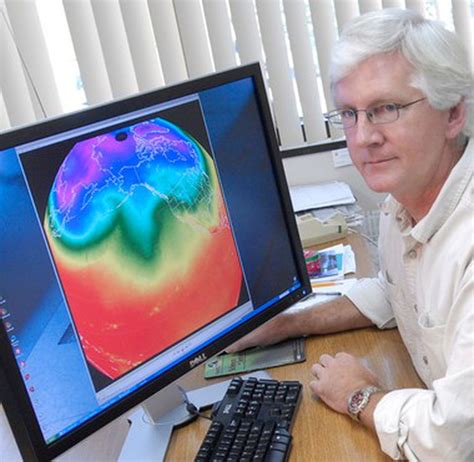A Quote by Tatiana Schlossberg
Health care in the United States is responsible for a tremendous amount of waste and a significant amount of greenhouse gas emissions. For every hospital bed, the American health care system produces about 30 pounds of waste every day; over all, it accounts for about 10 percent of national greenhouse gas emissions.
Related Quotes
I am troubled by the lack of common sense regarding carbon dioxide emissions. Our greatest greenhouse gas is water. Atmospheric spectroscopy reveals why water has a 95 percent and CO2 a 3.6 percent contribution to the 'greenhouse effect.' Carbon dioxide emissions worldwide each year total 3.2 billion tons. That equals about 0.0168 percent of the atmosphere's CO2 concentration of about 19 trillion tons. This results in a 0.00064 percent increase in the absorption of the sun's radiation. This is an insignificantly small number.
The money economy thus leaves a large ecological footprint, defined as the amount of land and resources required to meet a typical consumer's needs. For example, with only about 4% of the world's population, the United States, the largest money economy, consumes in excess of one-quarter of the world's energy and materials and generates in excess of 25 percent of the world's greenhouse gas emissions.
Al Gore likes to say that mankind puts 70 million tons of carbon dioxide into the atmosphere every day. What he probably doesn't know is that mother nature puts 24,000 times that amount of our main greenhouse gas-water vapor-into the atmosphere every day and removes about the same amount every day. While this does not 'prove' that global warming is not man-made, it shows that weather systems have by far the greatest control over the Earth's greenhouse effect, which is dominated by water vapor and clouds.
'Scientific' computer simulations predict global warming based on increased greenhouse gas emissions over time. However, without water's contribution taken into account they omit the largest greenhouse gas from their equations. How can such egregious calculation errors be so blatantly ignored? This is why man-made global warming is 'junk' science.
Coal ash gets far less attention than toxic and greenhouse gas emissions from power plants, but it has created environmental and health problems - every major river in the Southeast has at least one coal ash pond - and continuing legal troubles and large cleanup costs for the authority and other utilities.
CO2 is a minor player in the total system, and human CO2 emissions are insignificant compared to total natural greenhouse gas emissions. Therefore, lowering human CO2 emissions will have no measurable effect on climate, and continued CO2 emissions will have little or no effect on future temperature....While controlling CO2 emissions from burning fossil fuels may have some beneficial effects on air quality, it will have no measurable effect on climate, but great detrimental effects on the economy and our standard of living.






























